See what others have developed
Looking for some inspiration? Explore how Stern faculty have partnered with the Learning Science Lab to develop new learning formats, teaching videos, and technology enhanced learning.
New learning formats

Research for Customer Insights, A Flipped Classroom Experiment: Carol Pluzinski
Building on the flipped classroom approach to develop a set of instructional videos for students, prior to in-class sessions. The goal was to bring students of multiple ability and comfort levels to a common ground using digital resources to support self-paced learning. Creating a series of short (5-10 minute) videos allowed students to develop skills and procedural knowledge before class sessions, increasing the time available in class for questions, practice, and skill building.

The Social Problem-based Entrepreneurship: Hans Taparia, Business and Society
A tailored prototyping and design workshop series led by a consulting group. Through participation in the workshop sessions, students gained valuable insights about how to research and prototype their concepts.
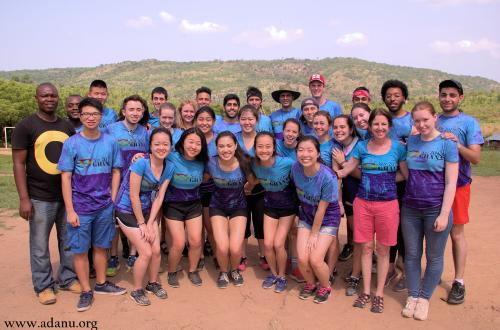
Social Entrepreneurship in Ghana: Hans Taparia and Rachel Kowal, Business and Society
An experiential learning course in which the class travel to a village in Eastern Ghana and help incubate two, on-ground, village-owned social businesses. The class partners with existing enterprises based in Ghana, set up by NYU alumni, to ensure their long-term sustainability.
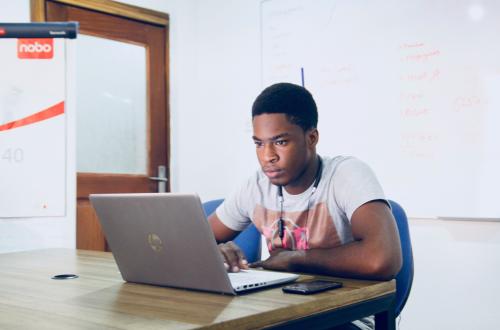
Flipped Classroom Short Videos: Natalie Levina, IOMS
A series of short, animated videos on select theoretical and conceptual material from Professor Levina’s course, designed for students to view before class. This enabled students to master the theoretical concepts in their own time and come to class prepared for discussions.

The VIBu Global Marathon Program: Jeffrey Younger, Management Communication
A set of instructional videos to raise awareness about the VIBu business simulation and its impact on learning. The student experience playing VIBu was also documented and shared with the larger community. The VIBu project is part of a curriculum on teams and supply chain management that consists of five sessions. To evaluate the effectiveness of this new curriculum a pre- and post-program survey was administered.
Teaching videos
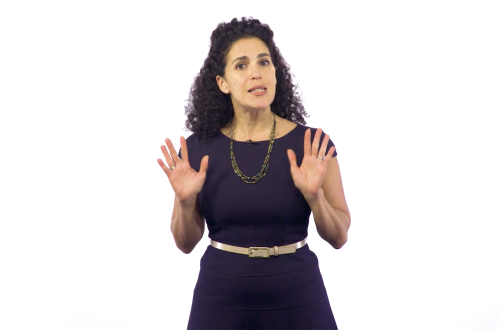
Online M.S. in Quantitative Management
We’ve been working with NYU Stern faculty to script, storyboard, and film teaching videos for the 24 courses in the school’s first online master’s degree program. These short videos, which include animated segments, appear in all courses throughout the program. They are designed to present students with new knowledge and build instructor presence in an online environment.

Real Estate Management Videos: Harry Chernoff and Ben Atkins, IOMS
A series of student-centered videos to be included in the Real Estate Development and Entrepreneurship course. By presenting fundamental concepts in an online video format, classroom time could be used for more hands-on modeling, site visits, and talks from industry experts.

Professional Writing Video Modules: Aline Wolff, Management Communication
A series of student writing modules specifically designed for Stern undergraduate students. Topics covered included concluding a document, streamlining sentences for improved readability, and idiomatic usage for international students.
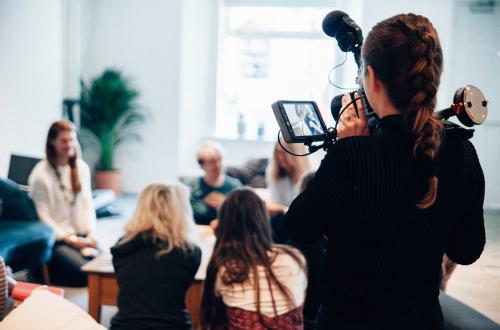
Stern Signature Project Toolkit Videos: Jamie Tobias, Bryan Ramos, and Lynn O’Connell, The Office of Student Engagement
This project consisted of five videos that explain the process and steps that consultants take with new clients. The videos serve as a framework to support the experiential learning nature of SSP. Students are able to reference them and watch at their own pace as they begin to work on their consulting projects.
Technology enhanced learning

Interactive Modules in Accounting: Mary Billings, Accounting
For each key business question in this course, students watch a walk-through video examining a real life example of the question and relevant accounting principles and procedures. They then complete an interactive exercise where they apply the procedures from the walk-through to a new company. The interactive activity provides guidance and feedback on the student’s choices and links back to the video walkthrough when students need help completing their analysis.
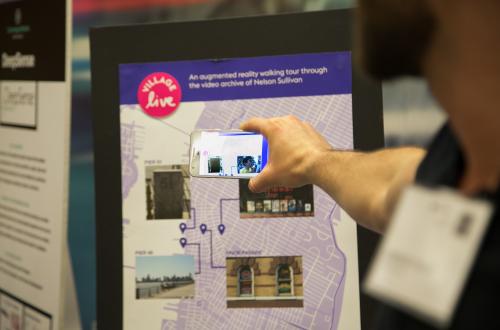
Leadership Presence App: David Purdy, Management Communication
A mobile app to help students improve their ability to develop their leadership presence for the “On Your Feet -- Think, Speak, Lead” leadership management course. The app is used to provide content, deliver exercises, and capture micro-journal entries, enabling students to increase their awareness and use of leadership skills.
New learning formats
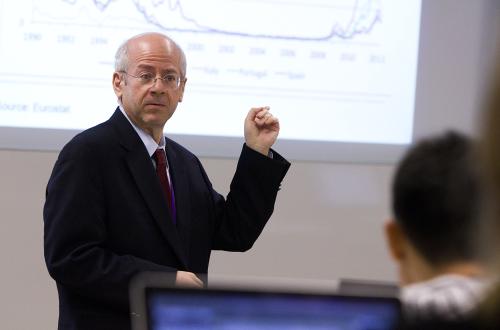
Core Macroeconomy Course Video Tutorials for FRED: Kim Schoenholtz (principal investigator), David Backus, Gian Luca Clementi, Thomas Cooley, Kim Ruhl, Laura Veldkamp, Michael Waugh, and Stanley Zin, Economics
A series of eleven video tutorials that help students navigate the FRED database. These short videos were created using Screenflow, a screen capture software, and are narrated by faculty. The videos were enhanced with annotations and helpful references to guide students through navigating FRED. The library of videos serves as a reference for Economics courses.

Online Tracking, Behavioral Profiling, and Privacy Rights: Michael Posner, The Center for Business and Human Rights
A student fellow project that mapped links between consumers, companies supplying or publishing advertisements, and data collectors, brokers, and analytics firms. Students produced an interactive graphic where users could input information and watch the flow of data change on the screen. Students also wrote a research report outlining business incentives and risks to privacy in different parts of the ecosystem. The reports were published on the Business and Human Rights Center’s website.
Providing consultations for learning design and technology.
Do you have a question? Sign up for a consultation with the Learning Science Lab.
